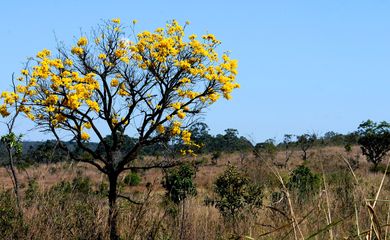Scientists denounce degradation of water resources in Brazil’s cerrado

Experts in water resources on Wednesday (Mar. 22) released a document entitled Letter in Defense of the Waters of the Brazilian Cerrado. The biome has been assailed by a decline in water availability and the lowering of the water table, posing serious economic, social and environmental risks. The diagnosis was presented by researchers and rural producers during the Grito das Águas (“The Cry of the Waters”) seminar in Brasília.

The letter will be sent to the United Nations (UN) Water Conference in 2023 and to Brazilian public authorities, at district, state, and federal levels.
The springs in the cerrado are vital, environmentalists say, because they are connected to the largest water basins in South America, including the Amazon and Silver River basins. “These basins provide water for agricultural and industrial activities, as well as power generation throughout the country, impacting the national economy and the lives of tens of millions of Brazilians,” the letter to the UN reads.
Federal District
In this connection, the Federal District, was highlighted by seminar participants as the cradle of the waters as well as Brazil’s water reservoir. With 5.8 thousand square kilometers, the Federal District is home to seven water basins: Maranhão, Preto, Corumbá, Descoberto, Paranoá, São Bartolomeu, and São Marcos. “The waters of the Federal District cannot be held hostage to regional interests. They are the heritage of all Brazilians, and have continental and international relevance,” the letter states.
According to seminar coordinator Professor Rosângela Correa, the cerrado is the savannah with the greatest biodiversity on Earth.
“In the Federal District, the waters can no longer tell stories. They are being silenced, suffocated, violated by asphalt, concrete, and sewage,” she denounced.
Among the main causes for the degradation of water resources in the Federal District, the scientists point out, are urban expansion, large real estate projects, irregular land parceling, and pollution, which lead to extreme poverty and poor access to water and sanitation.



